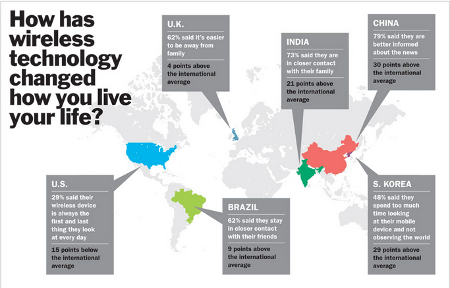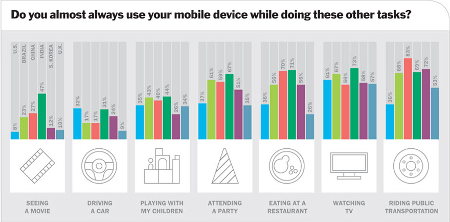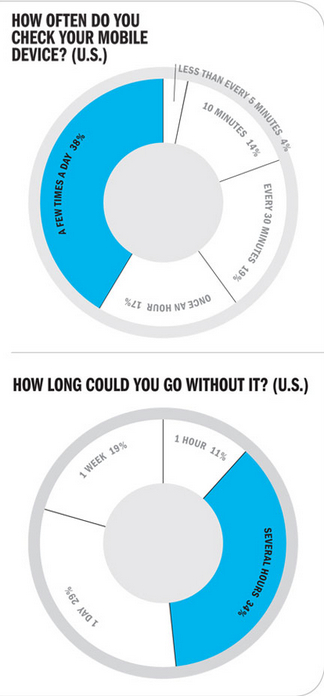 You’re at an important lunch meeting when your phone goes off. Do you answer it? It might be a prospective client responding to an email, or it might be an employee needing help. Smartphones might have made every other aspect of business more mobile, including communication; but now, thanks to the power of science, we know that smartphones are indisputably bad for our personal relationships.
You’re at an important lunch meeting when your phone goes off. Do you answer it? It might be a prospective client responding to an email, or it might be an employee needing help. Smartphones might have made every other aspect of business more mobile, including communication; but now, thanks to the power of science, we know that smartphones are indisputably bad for our personal relationships.
A research team led by Virginia Tech’s Shalini Misra created the concept for the test, which included 100 pairs of strangers. These pairs were set up for 10-minute conversations in cafés all around Washington D.C. Half of the pairs were assigned to make small talk, while the other half had to discuss important life events. The team recorded who took out their mobile devices, and how often, then asked each participant to complete a survey.
The study revealed that looking at your phone mid-conversation really does have an affect on your conversations, which inevitably leads to weakened relationships. Some of the observations made were:
- Pairs who frequently used their mobile devices during conversation had a decreased sense of “interconnectedness,” which was determined by the survey with answers like “I felt close to my conversation partner.”
- Even the simple act of placing the device on the table worked against the test participants.
- Feelings of “empathetic concern,” which were measured by whether or not the conversationalists really understood the feelings of each other, also decreased.
Well, there you have it, even the sight of a mobile device can put a damper on your relationships. This is especially true for those who are trying to build a good rapport with the other party, or for those who already have an established relationship. If you find yourself sleeping on the couch too often, maybe it’s time to reexamine why you keep checking your phone every four minutes.
Can You Go a Single Day Without Your Phone?
In another telling study done by Time from 2012, nearly 5,000 smartphone users from across the globe were surveyed about how dependent they are on on their devices. The results reveal that our society may have a slight problem with smartphone addiction.



Don’t Overwork Yourself
You might think that taking a break from your smartphone and giving yourself some mental downtime is a business sin, but the truth is that you shouldn’t overwork yourself. Even the most successful businessmen and women need a break from technology once in a while. According to Scientific American, the brain does need some downtime to restore attention and motivation, which in turn produces more productivity and creativity than burning out ever possibly could.
Sometimes, according to Andrew Smart’s book Autopilot: The Art and Science of Doing Nothing, it’s better to just let the reigns go and see where it takes you. This is called connecting with your inner consciousness and letting your brain work on its own for a change. Often, according to Smart, this can lead to a better understanding of what your unconscious self wants, and can lead to you using that knowledge to your advantage.
What are your thoughts on smartphone addictions? How long do you think you can go without checking your phone? Tell us in the comments.





Comments